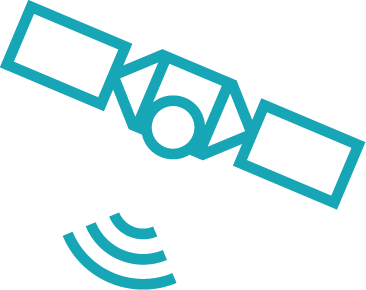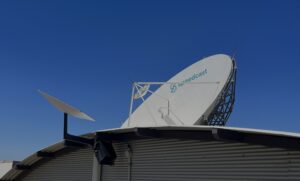C-Band is the range of radio frequencies between 3.3 and 4.2 GHz that has traditionally been used for satellite television distribution. It’s prime real estate because it resists “rain fade” – the ability of rain and earth atmosphere to soak up radio waves instead of letting them get to their destination. That’s why it is also heavily used for data and voice services in the rainy regions of the world, where companies mine minerals, produce oil and gas, and carry both cargo and passengers by sea.
The mobile phone industry values C-Band just as highly and has been working for a long time to get access to it. In the past few years, they have succeeded in persuading regulators to re-allocate hundreds of MHz from satellite operators to mobile service provider use to encourage deployment of 5G services.
To date, 23 countries have auctioned or allocated C-band spectrum for mobile, according to the Global Mobile Suppliers association, and nearly 30 more countries have upcoming auctions. So, if you have communication services that depend on C-band, you have to be asking “What happens to me?”
The satellite business may not be as politically skilled as the mobile industry – at least not enough to hang onto its spectrum – but it excels at handling technology problems like this one. Here are some takeaways for vessel owners or operators from maritime and cruise to energy and mining that may currently depend on C-Band for the reliability of their service in weather-challenged locations.
C-Band is not going away. Only a portion of C-Band has been allocated for mobile service providers in most jurisdictions, and satellite operators continue to order new satellites to focus on the available C-Band spectrum. So, spectrum will continue to be available even if it requires modifications to VSAT Antenna in order to access different frequencies within the band.
Each country is setting its own rules when it comes to licensing spectrum. It’s a regulatory Wild West for companies with global operations or vessels that move among nations. Be sure to seek advice regarding regulatory restriction and options ensuring you are compliant to any new requirements in the jurisdictions where you do business.
Spectrum over the oceans is unregulated. Regulators have national reach and are responsible for sites operating within the respective countries EEZ, meaning international waters are unregulated! This means that the full C-band spectrum will be available at sea beyond the range of mobile towers on land. That is good news for maritime, cruise and ferry vessels plying the seas.
Antennas can be equipped with filters to block terrestrial interference. If you can’t get away from mobile interference, you can filter it out. Bandpass filters are engineered to block the VSAT transmission at the specific frequency band and fit to the VSAT antenna, so your antenna can get the job done without interfering with the 5G services being rolled out.
View Speedcast’s Need to Know video with Will Mudge here:



























